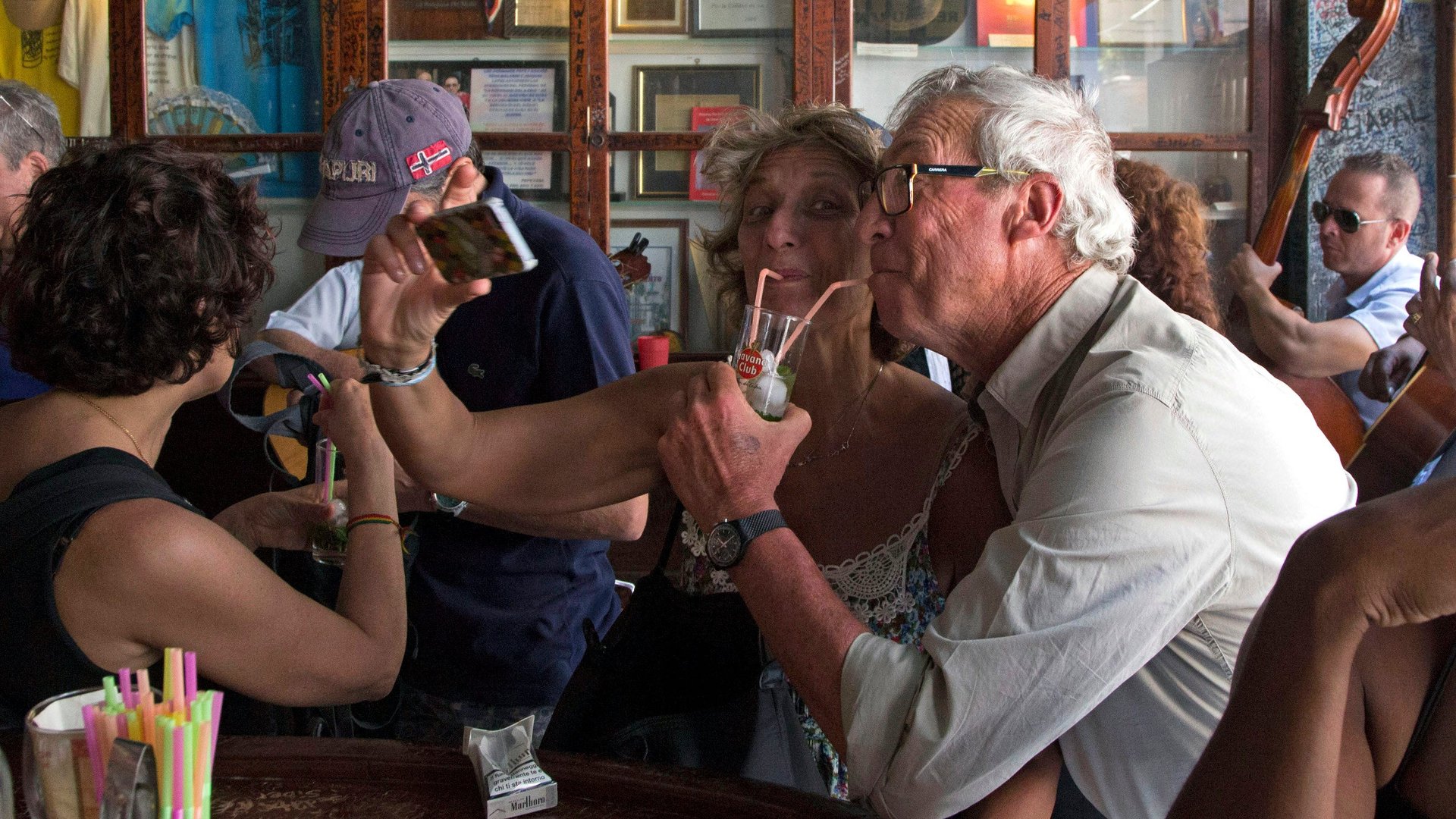Trump has made it illegal for Americans to buy a Cuban-made cola in Cuba
Donald Trump never liked his predecessor’s decision to ease the US embargo on Cuba. Now his administration has decreed new restrictions on how its citizens can interact with Cuba’s socialist government, including a lengthy list of entities they are forbidden to do business with.


Donald Trump never liked his predecessor’s decision to ease the US embargo on Cuba. Now his administration has decreed new restrictions on how its citizens can interact with Cuba’s socialist government, including a lengthy list of entities they are forbidden to do business with.
This means Americans in Havana could break the law by ordering the wrong Cuba Libre: Tropicola, the popular soda marketed by government conglomerate Cimex, as well as two of its rum brands, Ron Caney and Ron Verdadero, make the prohibition list. (Thanks to the long-lasting US trade embargo, Cuba is still one of the few countries in the world off-limits to Coca-Cola.)
The push for normalization under president Barack Obama encouraged many more Americans to visit the island for ostensibly educational and people-to-people to purposes, though tourist trips remain technically illegal. Trump, while not closing off all new travel, has tried to make it more of a hassle. The new restrictions both limit what Americans can do and increase the responsibility of trip organizers to make sure the rules are followed.
The list of restricted entities—which the US government promises to keep updating—includes a wide variety of organizations connected to Cuba’s government and military, two of the country’s biggest economic actors. Of course, it will be hard to prosecute Americans for minor transactions, but they will be required to keep records of large purchases and hotel stays for potential audits. That means no more souvenirs from the pricey gift shops in Old Havana operated by the state tourist agency, Habanguanex.
Hotels are take up most of the space on the list, since most of the largest are government-owned or joint ventures with foreign firms; only a few are operated entirely by foreign companies. The prohibition on hotels in the beach resort town of Verdadero will be keenly felt by Americans cheating on their “people-to-people” visits.
These new rules don’t appear likely to kill travel to Cuba, but stays could get more expensive as demand shifts to hotels not on the list or the already popular privately-owned bed-and-breakfasts. That’s assuming Americans aren’t scared off by the Trump administration’s travel warnings, issued after a bizarre saga of alleged sonic attacks on American and Canadian diplomats.
Meanwhile, American hardliners are already complaining that the new rules still have too many exemptions. For instance, while investment in a new tax-free economic development zone is now prohibited, Caterpillar and John Deere managed to keep deals they’d already made to sell their equipment in the country. Marriott, the US hospitality chain, operates hotels in Cuba, and AirBnB is a popular app for Cuban entrepreneurs.